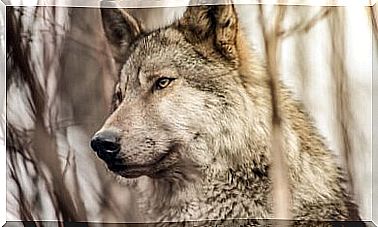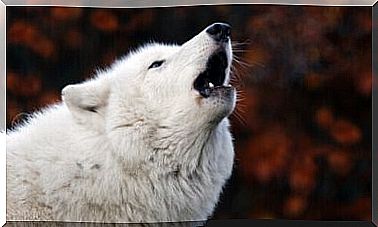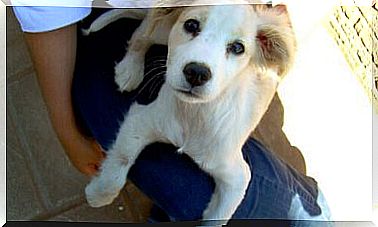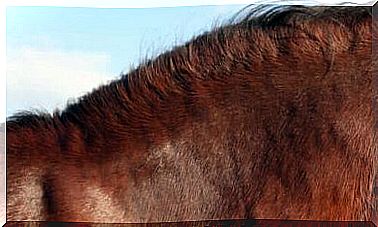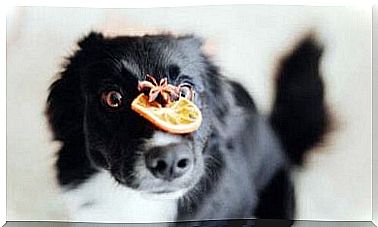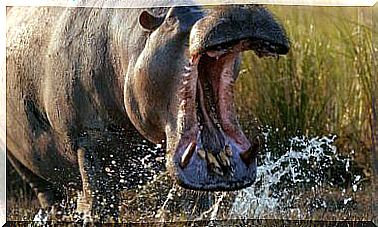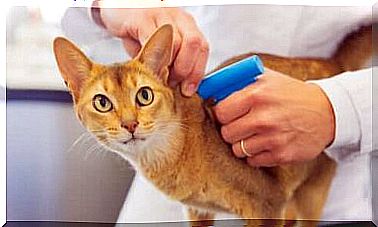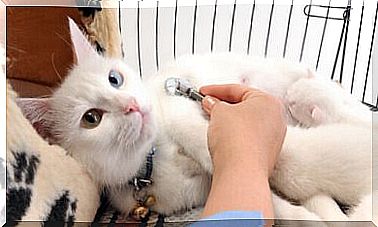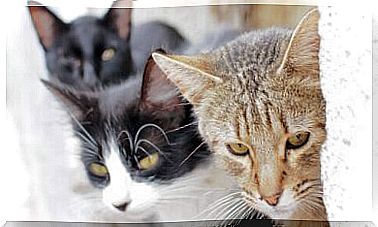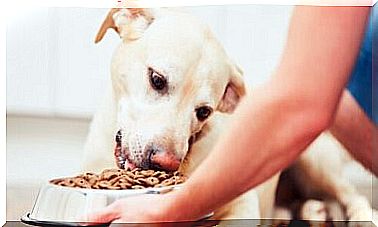The Feeding Of The Domestic Duck
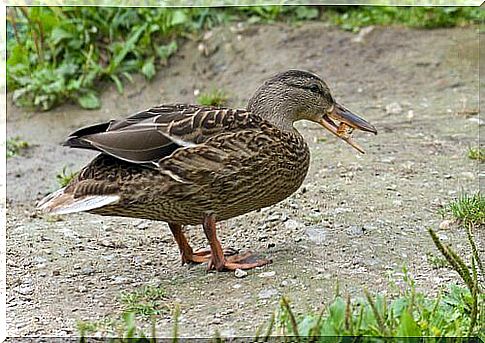
Have you ever wondered how is the feeding of the domestic duck ? This friendly and docile animal is famous for having almost completely lost the ability to fly. It no longer has enough strength in its wings, unlike the wild duck, which flies vigorously. This change is due to a crucial evolutionary change, driven by the opportunity to receive food from humans.
These birds are found all over the world and have a peaceful, docile, cheerful and peaceful nature. They are very sociable with humans and live on average from 9 to 12 years. But let’s see, then, how the feeding of the domestic duck should be .
What does a domestic duck eat?
Ducks have a very extensive diet and require a large amount of food. Vitamins, minerals, proteins and carbohydrates should be included in the diet. They are not fussy about food and in many cases it is easier to keep them than other birds, such as chickens.
It is important never to give them too large rations, because the processed feeds are made to make these birds fat and, moreover, they are processed in a not completely natural way.
Ducks, during their first three weeks of life, must be given special food for the chicks. Next, we will move on to poultry feed. Their diet can be based on specific blends, which can be supplemented by seeds, fruits and vegetables. It is recommended to feed them four to five times a day.
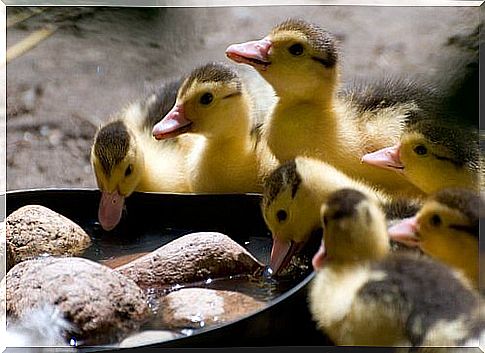
All about feeding the domestic duck
When analyzing the nutrition of these curious pets, there are elements that should never be missing in their diet. Such as:
1. Water
You must always ensure sufficient hydration. Keep in mind that since ducks have no teeth, they use water to aid in the ingestion of food. For this reason, water must never be lacking. It is recommended to place bowls of fresh, clean water next to the food and change them twice a day.
The trough should be deep enough so that the bird can immerse its entire beak up to the nasal passages easily and without hindrance.
Since water is so important in their lives and dehydration in these animals is something serious, it is advisable to have a pond where they can swim and drink. The water in this pond needs to be renewed regularly.
2. Seeds and cereals
Grains are the main source of carbohydrates for ducks, especially rice, corn, barley and oats:
- Soybeans. They are a source of protein and vegetable carbohydrates. They should be added to their usual feed.
- Sunflower seeds. Certainly an excellent source of protein and fat. They facilitate digestion.
- Eggshells and ground bones. They are used to supply minerals such as calcium and proteins.
- Vegetable and fruit leaves. They are sources of vitamins. We recommend: lettuce leaves, alfalfa, cucumber, carrot, apple and grapes cut in half. Fruit consumption should be limited, as an excess of sugar could be harmful to their health.
- Cooked eggs and fish. They are important sources of animal protein.
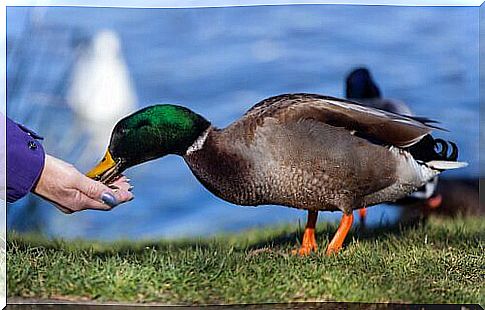
Feeding in the garden
When ducks go for a walk in the garden or yard, they can find foods to supplement their diet such as :
1. Small stones
Sometimes they swallow pebbles they find lying around. These elements help to grind the remains of food that may remain in the esophagus.
2. Insects
They like to eat insects such as snails, earthworms or mealybugs. Some people even use them to eliminate pests from their garden, and thus allow them to avoid the use of pesticides.
Foods to avoid when feeding the domestic duck
- Bread. It’s the equivalent of junk food for us. In addition, it causes the rapid decomposition of water. Although bread is not recommended for domestic duck feeding, it can be offered occasionally and wholemeal only.
- Fries. A very harmful food for the digestive system of these birds.
- Leftovers: Ducks do not have an organism adapted to digest human food.
- Seasoned dishes: They irritate the bird’s stomach.
- Sweets: Foods like popcorn, cookies, soda, and chocolate can be very harmful to a duck.
It is important to remember that a diet rich in carbohydrates could make the bird sick by causing a condition called “angel wing”. This causes the rotation of the last joint of one or both wings. The result is that your duck will stop flying forever.
